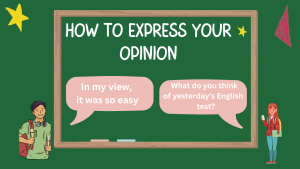
Basic notes about expressing hopes and present wishes
The difference between expressing hopes and present wishes can sometimes be confusing and may even be challenging, at least for some students. The main difference between them is that “hope” refers to a plausible desire that we want to happen and that we think it is likely to happen. That is, there is a possibility that what we desire can take place in the future time.
“Wish”, on the other hand, refers to something that we desire it takes place in the present (or future time), but there is little chance for that because what we desire is hypothetical (imaginary /unreal) not true. It is something implausible; i.e., it is unlikely to happen.
When expressing present wishes or regrets, we usually talk about something which, despite being imaginary and implausible, still lends itself to change. In other words, we still feel some sort of optimism that there might be an opportunity for change and, therefore, reach what we want.
To have a deeper understanding of the difference between the two, study the following tables and examples.
| Hopes ( Things that might happen) | Wishes (Things that might not happen) |
| 1. Receive a lot of money | Fly like a bird |
| 2. Find a good job | Be a king |
| 3. Have children | Be a millionnaire |
| 4. Remain in good health | Travel to the moon |
| 5. Buy a new car | Become a world champion this year |
| 6. Have good friends | Speak all languages of the world |
| 7. Speak good English | Drive a plane |
How to express hopes
To express hope, we should apply the following sentence structure.
| Form | Use |
| Subject + hope + present/future simple | We use this form to talk about possibilities (i.e.things that are likely to or might happen)in the present or future time |
Examples
| Sentence expressing hope | Meaning |
| 1. I hope I receive/will receive a lot of money. | 1. It is possible to receive a lot of money. |
| 2. I hope I find/will find a good job. | 2. It is likely to find a good job. |
| 3. I hope I have/will have children. | 3. It is possible to have children. |
| 4. I hope I remain/will remain in good health. | 4. It is likely to remain in good health. |
How to express present wishes
To express wishes, we should apply the following sentence structure.
| Form | Use |
| 1. Subject+wish+past simple 2. If only+subject+past simple | We use these forms to talk about imaginary/unreal/untrue situations in the present time. |
Examples
| Wish | Meaning |
| 1. I wish/If only I could fly like a bird. | 1. It is impossible to fly like a bird. |
| 2. I wish/If only I had a golden voice. | 2. I don’t have a golden. This is an imaginary fact. |
| 3. I wish/If only I could speak English. | 3. I can’t speak English, and it takes to learn how to speak it. |
| 4. I wish/If only I would become a world champion | 4. There is little chance of becoming a world champion. |
| 5. I wish/If only I were beautiful. | 5. I am not beautiful, I can’t change myself for a better look. |
| 6. I wish/If only I had many faithful friends. | 6. I don’t have many faithful friends. They are difficult to find. |
| 7. I wish/If only I could play the piano. | 7. I can’t play the piano. This is not easy to do or learn. |
Remark
| Wish sentence | Reality/Meaning |
| Affirmative/Positive | Negative |
| Negative | Affirmative/Positive |
Exercise about expressing hopes and present wishes
Put the verbs between parentheses in the correct tense
- Bruce wishes he (have) more money so that he could buy a new sweater.
- If only I (be) taller so that I could be in the basketball team.
- I hope you (stop) watching television while I am talking to you.
- I wish you (do) that. It annoys me.
- I hope the holidays (come) so that we can go off to the seaside.
- Of course, Tom wishes he (come) with us to Paris, but he has to stay here.
- I hope we (go) to the match on Saturday.
- I hope you (keep) your mouth shut. Mary may know.
- I cannot sleep. The dog next door is making too much noise. I wish it (be)quiet.
- Peter is always late. If only he (turn up) on time for a change!
- I wish I (speak) Chinese.
- If only we (be) old enough so we would be allowed to go to the pub.
- I hope the children (stop) shouting.
- If only I (can/ go) with you.
- I hope you ( turn) that TV off.
- I don’t understand this point of grammar. I wish I (understand) it better.
- I live in a small house. I wish I (live) in a big one.
- There’s a strike tomorrow. I hope some buses ( still/ be) running.
- I hope everything ( be) fine in your new job.
- If only it (be) Saturday today.






